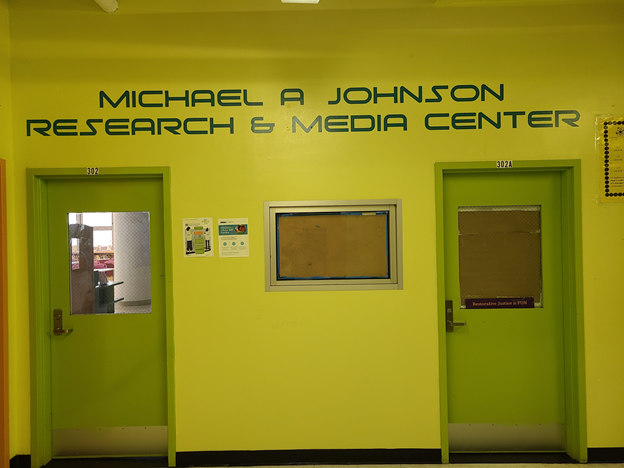I try to approach social media first with having the daily objective of encouraging and inspiring some person I may, or may not know. I also enjoy informing people of some good and vital learning enhancing information opportunity, i.e. a scholarship, internship, or an informal education experience (museum event). I further like to see the personal progress, successes, victories, achievements, accomplishments, new jobs, job promotions, graduations, and positive completions that people are able to realize; in particular I look forward to seeing the “good-news” of the many young people I have been blessed to work with in the past. And yes, I love, and never get tired of their children’s pictures! (My personal enjoyable and funny pay-back is when they sound like me when dealing with their teenage children!:-)
I (a passionate and consummate learner) also see social media as a tool, and opportunity for me to learn something new, something different, something for which I was unaware, some piece of knowledge or information I can use in one of my many “projects”, diverse study interest and numerous hobbies. I think that one way that I would define death (sorry biology teachers); is the personal end of learning. I utilize social media to fill my knowledge gaps; and in this practice I am very fortunate to be connected and “friends” with a large number of smart, intelligent and creative people, many of them former students or collogues.
The term “life-long-learner” is too often a throwaway line in my profession; but I really find joy in constantly expanding my knowledge-information resource bank across many different subject areas; particularly those topics outside of my intellectual comfort zone. If the end of learning is a kind of hell; then the reluctance and failure to get outside of ones learning comfort zone, must be the road to that hell. I love to read something that shakes-up my assumed knowing or a “sacred” and passionately held belief. The reason I think most people actually avoid pursuing life-long-learning; is that it can often put you in the very uncomfortable position, of having to continually think about your own style and substance of your thinking. (What we call in the field: metacognition)
That’s the good side…
But too often, I also find some very disturbing behaviors in the social media world. People will use the electronic distance, and the anonymous “handles” to say very ugly and hurtful things. To say things to and about people they would not say in a physical social-group setting, and definitely not to the person’s face. Now I am not talking about the critiques of public figures or officials; although even that can at times go a little too far. I believe that you can’t benefit from being a “public person”, and at the same time not expect to hear “negative feedback” from that same public. I know as a former superintendent of those dreaded monthly meetings where at 3 minutes a clip, you could receive the sometimes not so pleasant “advice” (often conflicting) from the public, as to how you are, or not doing your job properly. Public critiques are part of the “price of the ticket”; but we can very easily forget that these “public people” are also human people. And this would include the ever increasing “parent rants” about their child’s teacher on social media (It would be more productive to set up a meeting with the teacher and administrators at the school!) Public service should not translate into public abuse. On social media I think that too often even “humorous” comments at times rises to the level of abuse and disrespect for the humanity of a public-person; particularly when it includes the passing on of unconfirmed story lines; or drawing in their innocent family members into the conversation for reasons of inflicting unearned ridicule and rebuke.
My personal practice is to first read a comment or a posted article. And if it’s an “interesting” (defining interesting is “a whole nother” post!) article I may save it in one of my many reference folders; i.e. creative writing, early childhood education, Art, history, school improvement, “bucket list stuff”, school leadership, etc. Or sometimes I will read an article or post, and just take “interesting” sections (quotes, books, references) put them in a file and revisit them later for an article, or to shed light on something else I am reading. This style of reading-studying-note taking, the comparing and contrasting of different articles, the process of dissecting, deconstructing and analyzing is a result of several autobiographical experiences:
(1) My having spent so much of my “latch-key” childhood life in the unofficial after-school care of the Brooklyn Public Library. There I learned that searching (researching) for knowledge and fun was, well fun! I learn to love the pursuit of what appears to others to be disassociated, disconnected and obscure topics of interest; for no other reason except that they are in the world to be known. Since the 50’s (reading the entire Sherlock Holmes series) I interpreted, “smartness” as to mean that you were conversant and a student of knowledge across multiple subject areas. Later in undergraduate school one of my heroes was my social psychology professor Dr. Kenneth Clark, who could link and move effortlessly between the disciplines of history, anthropology, philosophy and political science, etc. later I would feel the same way about people like W.E.B. Du Bois and Michel Foucault.
(2) I had great k-12 teachers, and in particular a 12th grade English teacher who threatened us kids with torture on “the rack” if anyone ruined her perfect pass rate on the NYS English Regent’s exam. The courts may have taken religion out of public schools; but not out of her class; we were warned: “The Lord himself will need to come to the rescue of anyone who fails that Regents exam!” Some of us may have trusted in the Lord; however in this case, we preferred not to use that option. But it was not only her fierce admonitions; these words were matched with her commitment, efficacy, competence, and the ever present, and ever ready to be used red pen; for which no essay, book report or composition could escape without a red corrective comment (how on earth did she find all of those small mistakes?). I think somewhere in the middle of the semester we all gave up on: “no red marks”; and redefined victory as a small amount of red marks. I know that in our modern pedagogical era the “red pen” has been ruled verboten, but back in the 60’s they were more concerned about our academic achievement and success, then our “hurt” feelings. In any event no one from my class ended up on the “rack.”
Finally (3) I had a gem of a professor at Columbia’s Teachers College doctoral program for my research methodology class, the late Dr. Linda Powell. She actually taught me “to read” in a new and different way, such that even now as I read any article or paper I can almost instinctively detect the slightest bias, faulty premise, a flaw in logic, or inadequate-incorrect research methods; and any disconnect between the title, hypothesis, the body of the work and the conclusion. And so I bring all of this to my social media readings.
And is this wrong?
I say this because I often read the “comments” and responses that others post in response to postings (including mine); and I am left to wonder if the responding individual even took the time to read the post or the article in question. I have visions of that dreaded 60’s “red pen” hovering above my head, as I read some of these comments. “Did they read the same article I read?” Sometimes I have even gone back to re-read the article (including some I have posted) assuming that: “maybe I read it wrong!” Nope, (that’s time I will never get back!) I read it right. It seems that the “off-topic” respondent wanted to make a point, and to hell with the actual point of the post or article! There is a lot of: “putting people in their place”, or “straightening people out” on social media, and less learning from others. But I think many of these incorrect corrections are really social media putdowns masquerading as the free flow of differing ideas. And not to get lost in all of these efforts; I have also seen some very enlightening (respectful) and educational debates and dialogues on social media; but I think the anonymous nature of the medium encourages too much of the “put down” stuff.
Perhaps this is a place where K-12 educators can be helpful (where are my curriculum and instruction majors!); after all I don’t think that social media is going away anytime soon. Mabey we should put this media into the (ELA?) curriculum. Help students to see it not only in the context of communication, but also as an educational learning tool with standards and accompanying rubrics to define and explain those standards. The technical aspects of social media (how does snapchat do what they do, technically?) A business-entrepreneurial use of the medium. And what about an “anti-bullying”, respect, tolerance, conversational etiquette component in the curriculum. And finally some “Too Much Information Sharing” standards; there are somethings that the public, family, friends, co-workers; future: voters, constituents, college selection committees, students, customers, employers or employees, (present or future love interest!); don’t need to know about you! I can’t speak for my other collogue-friends, but I did not plan to be a principal in high school or college (and had no idea what a school superintendent was or did)
Clearly, I don’t fit into the: say “whatever” (comes to mind) age…
Thinking of the term “old-school”; I have now accepted that the term defines me in both ways. For I can’t count the number of times in the past that I have had students in my office as a principal where I suggested to them that: “Just because an idea, enters your head, it does not always mean that you are required to verbally share it with the teacher or class.” Or: “Imagine if you did not allow that phrase to leak from your head to your mouth; instead of sitting here now with me, the teacher could be thinking, (not having any proof to the contrary), that you have a great deal of sense!” Mabey calmer and more thoughtful “heads” will eventually come to be the best and common practices we see on electronic social media. I sure hope so!




